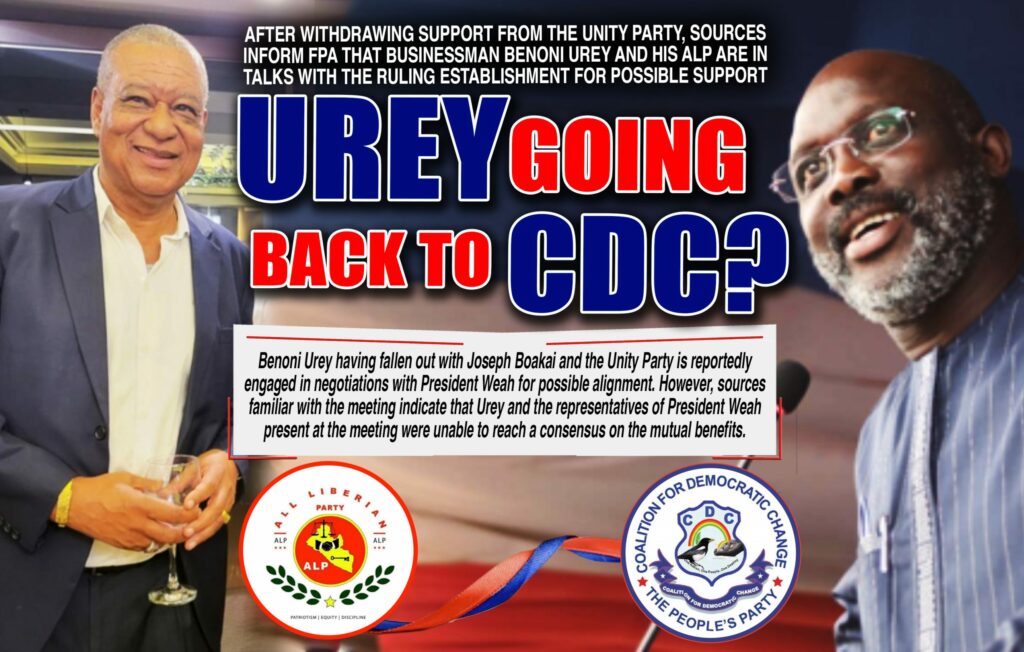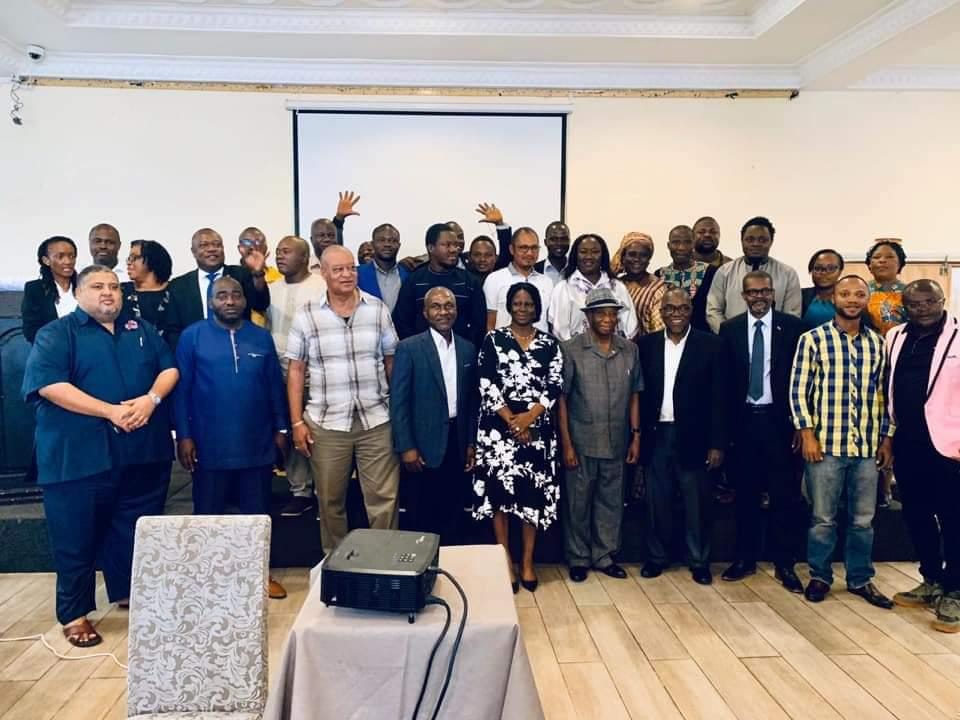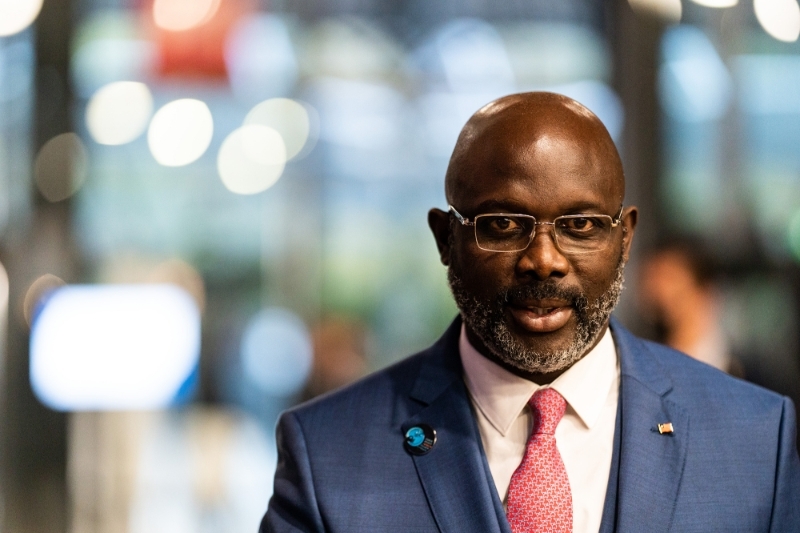News circulating in Monrovia the capital of Liberia says that the ruling Congress for Democratic Change (CDC) whose leader is President George Weah has reportedly initiated discussions with Benoni Urey, a former UN sanctioned Warlord, and leader of the All Liberian Party (ALP), to secure endorsement for President Weah re-election.
Sources reported that the meeting took place at the Boulevard Palace and included key figures such as Finance and Development Planning Minister Samuel Tweah, Eugene Nagbe, the newly appointed campaign chairman of the CDC, Chairman of the CDC Mulbah Morlu, Macdonald Wentoe, Senator Saah Joseph of Montserrado County, and prominent ALP members, including former Gbapolu Senator Theodore Momo.
According to ALP insiders, the meeting, held on Tuesday, July 18, concluded without a resolution, prompting the rescheduling of further discussions. Urey and representatives of President Weah failed to reach a consensus on potential financial benefits associated with Urey’s support. Moreover, Urey has requested a meeting with President Weah at his residence, citing privacy concerns.

Last week, Urey withdrew his party’s support for the opposition Unity Party (UP) standard bearer, Joseph Boakai, during a press conference hosted by Henry Costa, an ALP member. Urey’s decision to withdraw support from Boakai was triggered by Boakai’s choice of running mate, Senator Jeremiah Koung.
In late April, before the announcement of his running mate, Boakai visited Urey’s home amid rumors of selecting Senator Koung as his vice standard bearer. The meeting, attended by Costa and members of both the UP and ALP teams, aimed to convince Boakai to reconsider Koung’s selection. However, Boakai remained resolute in his decision, viewing it as the best strategy for winning the election.
Sources familiar with the discussion informed FrontPageAfrica that Urey, displaying signs of disappointment, questioned Boakai about his willingness to align with Senators Prince Johnson and Edwin Snowe, whom Urey considers burdensome if Koung is chosen. Some argued that these two senators would exert their influence on Koung, thus creating complications.
Reportedly, Boakai responded by stating, “Even the devil has a role to play. I don’t like Prince Johnson but I have to work with him to win.” While FrontPageAfrica has been unable to verify this quotation, Mo Ali, a political officer to Boakai who did not attend the meeting, categorically denied that Boakai made such a statement, clarifying that Boakai was prepared to work with anyone.

Urey’s potential support for the ruling establishment also follows Costa’s departure from the UP, citing what he perceived as betrayal from Boakai, who opted not to select him as his running mate. Costa claimed that his financial backers offered him millions of dollars to run for the presidency in this year’s general and presidential elections. However, Costa declined the offer and expressed unwavering support for Ambassador Joseph Boakai, suggesting redirecting the funding to support Boakai’s presidential bid instead. The financiers agreed to channel the money to Boakai on the condition that Costa would be chosen as his vice standard bearer.
Costa stated that his hopes were shattered when he discovered that Boakai had criticized him during a meeting with the same financiers, urging them to abandon him and solely support Boakai’s campaign. Costa further alleged that Boakai made promises, including offering the financiers ownership of the Wologizi Mountain in Lofa County, to ensure their compliance with his demands.
Benoni Urey, previously part of the Collaborating Political Parties (CPP), now poses as a potential disruptor to what could have been a formidable opposition against incumbent President George Weah. Urey had been a vocal advocate for former Vice President Joseph N. Boakai to lead the CPP’s presidential ticket in the upcoming 2023 elections. The CPP, formerly considered the main opposition bloc, comprised the former ruling Unity Party (UP), Alternative National Congress (ANC), Liberty Party (LPP), and the All Liberian Party (ALP). However, the unity among the four parties crumbled when Urey accused Alexander Cummings, the political leader of the ANC, of tampering with the CPP Framework Document. Urey consistently opposed Cummings leading the CPP to the elections, instead favoring Boakai.

Urey emphasized Boakai’s extensive political experience, education, and proven track record as key reasons supporting his belief that Boakai was the best choice to lead the CPP in the 2023 elections. Despite facing criticism from other political parties, Urey remained steadfast in his support, undeterred in his belief that Boakai was the most qualified candidate. While he did not disclose which parties ridiculed him, Urey acknowledged encountering significant opposition.
Source: Front Page Africa






